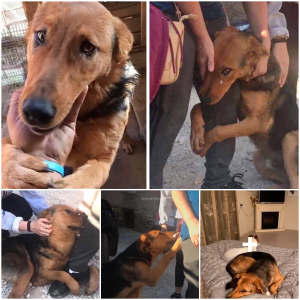Mangoworm infestation in dogs is a distressing condition that can cause discomfort and health complications for our beloved canine companions. These parasitic larvae, commonly found in tropical regions, particularly in Africa, thrive in warm and humid climates. Understanding mangoworm infestation, its symptoms, treatment options, and preventive measures is crucial for ensuring the well-being of our furry friends.

- Understanding Mangoworms: Mangoworms are the larval stage of the mango fly, scientifically known as Cordylobia anthropophaga. These tiny larvae burrow into the skin of mammals, including dogs, where they feed and grow. The infestation typically occurs when dogs come into contact with contaminated soil or vegetation.
- Symptoms of Mangoworm Infestation: Dogs infested with mangoworms may exhibit various symptoms, including:
- Itching and scratching at the affected area.
- Formation of small, raised bumps on the skin, often with a central pore.
- Skin inflammation and irritation.

- Secondary bacterial infections.
- Hair loss and skin lesions.
- Treatment Options: Treatment for mangoworm infestation involves careful removal of the larvae and management of any secondary infections. Veterinary intervention is often necessary to ensure thorough removal of the larvae and proper wound care. The veterinarian may use forceps or a small incision to extract the larvae from the skin. Antibiotics and antiparasitic medications may be prescribed to treat any associated infections and prevent further infestation.
- Preventive Measures: While mangoworm infestation can be challenging to prevent entirely, several measures can help reduce the risk:
- Avoid allowing dogs to roam in areas known to be infested with mangoworms.
- Keep your dog’s living environment clean and free from debris.

- Regularly inspect your dog’s skin for signs of infestation, especially after outdoor activities.
- Use appropriate insect repellents or insecticide products recommended by your veterinarian, particularly when traveling to areas where mangoworms are prevalent.
- Seek Veterinary Assistance: If you suspect that your dog is suffering from mangoworm infestation or if you notice any unusual symptoms, seek veterinary assistance promptly. Early detection and treatment can help prevent complications and promote a speedy recovery for your pet.
In conclusion, mangoworm infestation in dogs is a concerning condition that requires prompt attention and proper veterinary care. By understanding the symptoms, treatment options, and preventive measures, we can help protect our canine companions from this parasitic threat and ensure their health and well-being.





